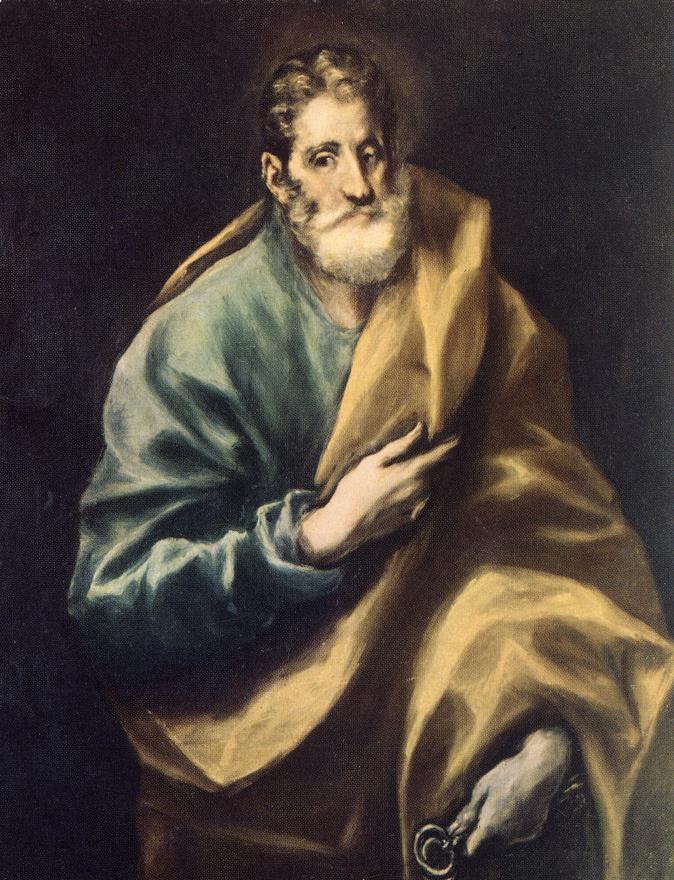Description
The painting Apostle St Peter by the renowned artist El Greco, is a work of great artistic and cultural value. This work was created in the 16th century and is currently in the Prado Museum in Madrid.
El Greco's artistic style is very particular, and can be seen in this work. The figure of Saint Peter is in an upright position, with arms and legs stretched out. This posture gives a sense of movement and dynamism to the work. In addition, the artist uses the chiaroscuro technique, which gives the figure an effect of depth and volume.
The composition of the work is very interesting. The figure of Saint Peter is in the center of the work, surrounded by a dark and mysterious background. In the upper part of the work, an intense blue sky can be seen, which contrasts with the dark background of the figure.
Color is another important aspect of the work. El Greco uses a very rich and varied color palette, in which dark tones and intense colors predominate. Blue and red tones are widely used in the work, which gives it an effect of drama and emotion.
The history of the work is very interesting. It is believed that it was created in the year 1600, commissioned by the convent of Santo Domingo el Antiguo in Toledo. The work was acquired by the Museo del Prado in the 19th century, and since then it has been one of the most outstanding works in the collection.
As for little-known aspects, it is known that El Greco was inspired by the work of Michelangelo to create the figure of Saint Peter. In addition, it is believed that the artist used his own face as a model for the figure of Saint Peter.
In summary, the work Apostle St Peter by the artist El Greco is a work of great artistic and cultural value. Its artistic style, composition, color and the story behind the work, make it a unique and very interesting work for art lovers.

